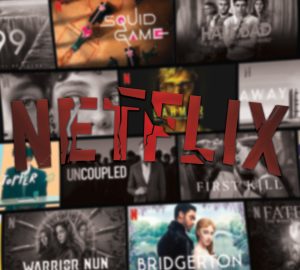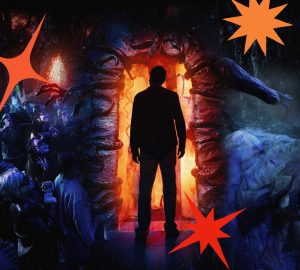The Ironic Demise of Squid Game

The first season of Squid Game took the world by storm. According to the Los Angeles Times, it generated $900 million in revenue, and was the subject of Halloween costumes and internet debates–it was rightfully a huge phenomenon. It was a thrilling drama but also touched on every grievance we feel in society, even if it passed over our heads. We connected with it even if we didn’t fully understand it.
I and many others were quick to recognize the series as a critique of capitalism. In a similar vein to another piece of Korean media, Parasite, which won Best Picture about a year before Squid Game’s debut, it places its characters in a hyperbolic, dramatized scenario to tie together its allegory. 456 people are placed in a game where they are told they will win billions of won by simply playing their favorite childhood games. Quickly they realize, they will only become the victor if they are willing to overpower those beside them.
The show was a fantastic package of this messaging, checking off every box it needed to. Our main character, Gi-hun’s mom, is suffering from diabetes when he enters the game, and when he wins, he’s greeted by her dead body. But she didn’t die from her illness, she died from being too poor to maintain it. The games are run by an apathetic financial tycoon who gets so bored that he decides to profit off of people’s desperation for his entertainment. VIPs from across the world bet alongside him; each character is an archetype that builds on the metaphor, and every inch of it illustrates that capitalism is not a system of meritocracy but one about control.
Soon after the first season’s success, there were talks of a second. It made me worried about the future of this series I had grown to love. However, what Netflix would do with the IP in the coming years was worse than just a possible second season.
Squid Game: The Challenge debuted in 2023 as a reality game show version of the original series. Other than the violence, it imitates the original exactly. It brings on real people who are desperate for money to fight their fellow contestants for the prize. I was already prepared for a second season to disregard the message of the series, but this took the cake. Netflix utilized the success of this property to recreate the game that our main character, Gi-hun, is trying desperately to stop because it is so horrifyingly brutal and exploitative. They assumed their rightful role as the capitalists who created these games to profit off of others’ desperation. I felt as if I was going insane watching as people soaked up this psychotic concept that is now set to receive a second season due to its success.
Finally, at the end of this past year, the second season was released, and as predicted, it was chock-full of bad writing, completely threw away all of its symbolism, and successfully killed the heart of the series. Several publications, such as the Jacobin, The Harvard Crimson, and even Time Magazine echoed the irony in the series’ turn.
In the second season, the anti-capitalist metaphor is nearly ripped out entirely, with the focus mainly relying on the storyline to end the games. The VIPs we saw in the first season watching and betting on the contestants are no longer shown, and it copied the formula of the first, inserting a kingpin of the games alongside the contestants without their knowledge. In the first, it was Player 001, the creator, now it’s the Frontman.
The side characters in this season lack as much depth. Sae-byeok, one of the top three contestants in the original season, had escaped North Korea with her brother and needed the money from the games to help her mom. We get this in-depth analysis of Korea’s past, the division of Korean society, but also this underlying statement about the communism-capitalism debate. There is almost something poetic about this character who was escaping communism and dying at the hands of this capitalist allegory. It states that even if you have these preconceived notions that communism is violent and will never work, capitalism is just as horrific.
The new characters don’t exhibit this level of depth or add to the overall message. The closest we get is Kim Junhee, who needs the money to pay for her pregnancy and raise her child. Some of the characters have fallen into the crypto space, but it’s surface-level in comparison to the first season. There’s not nearly as much thought into how they add to the story. They’re simply there just to be there.
It wasn’t all bad, though. There were two major plot lines it executed well. For one, the voting mechanism was one of the main aspects of the games this time. Players can vote to end the game early and leave with any prize money that has been accumulated. Despite their best efforts, those who desire to leave can never quite convince enough players, leading these bloody games to continue.
Under capitalist societies, this dynamic plays out quite often. We’re seeing it now after our most recent election in America and even elections across Europe, which have uplifted fascist parties. When a society becomes desperate financially, they would rather inflict violence on those closest to them if it means their burdens will be eased. In America, we blame immigrants and the trans community, in Europe, it’s Muslims, and in Korea, it’s women. Different targets, but all born out of the same problem.
When Gi-hun realizes voting won’t get him anywhere and decides to plan a revolution. They steal guns from the guards and engage in a standoff to take over the control room. Throughout history, democracy has often involved revolutionary protests: the civil rights movement, the ANC’s stand against the South African apartheid, and Palestinian emancipation. Korea has its own history with uprisings, one of the most famous being the Jeju Massacre during the Korean War. During South Korea’s first election, the islanders of Jeju protested for a unified Korea and were violently suppressed by the military for their actions.

Both of these events in the story are a good analysis of how the concept of democracy works under a capitalist society. If those you elect are being paid off by corporate lobbyists, they aren’t working for the people but the 1%. This isn’t just relegated to America; Korea is no stranger to this phenomenon. Chaebols or wealthy families have a huge influence on the government as they are considered the backbone of the Korean economy. When the system of politics is this corrupt, “democracy” only goes so far.
The series could’ve been salvaged with these two well-thought-out plot points in the story, but everything that surrounded it sealed its demise. As the series progressed, the writing and executive choices seemingly got worse. One of the best examples was The Detective’s side story. It became his mission to find which island the games were taking place on and use his influence as a police officer to stop it. Later, it’s revealed that the boatman helping him is a traitor, sabotaging his investigation. This part of the story is so drawn out though, that you lose investment. As the series is concluding, there’s a point where you don’t see The Detective for about two or three episodes. This example of poor writing and pacing can be extended across the whole series.
The season ends with a cliffhanger, but as the audience, really nothing is left to be desired. It ends awkwardly after Gi-hun’s uprising fails and his best friend is shot beside him. There’s no hint of what will come next or anything to look forward to. All we are left with is this feeling of despair, which could’ve been more successful if the story had been completed.
While the entire season wasn’t a complete miss, it still ultimately serves as a lesson that some stories need to be left alone. The first season was satisfying. It fulfilled and touched on every avenue it needed to drive home its point. It explored different aspects of Korean society and the ways in which hypercapitalism can destroy lives.
A second season was pointless. It disregarded and neglected the main elements from the previous season, ruining the continuity of the world. The plot was poorly paced, and the characters lacked as much depth.
It is evident that its only purpose was to be a cash grab for Netflix. The first season made nearly a billion dollars, and they wanted to milk the IP for everything it was worth. That is only further proven by their choice to put real people in a Squid Game simulation for content, and their decision to end the second season on an awkward cliffhanger if it means there will be a third. Netflix chose to make Squid Game another recycled IP in this landscape of uninspired media instead of honoring its integrity. Ironically, Squid Game’s initial message about the harm of capitalism became its very demise.



























